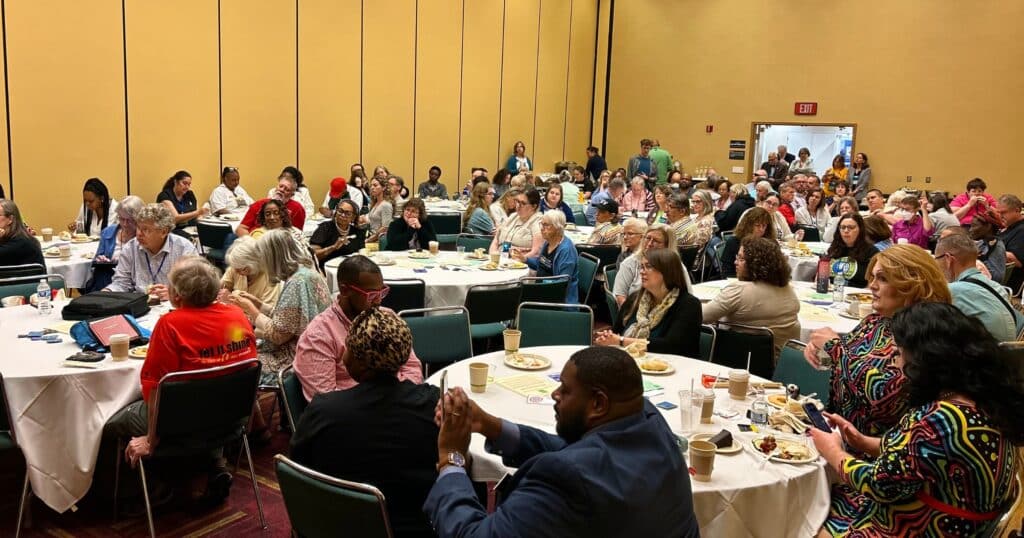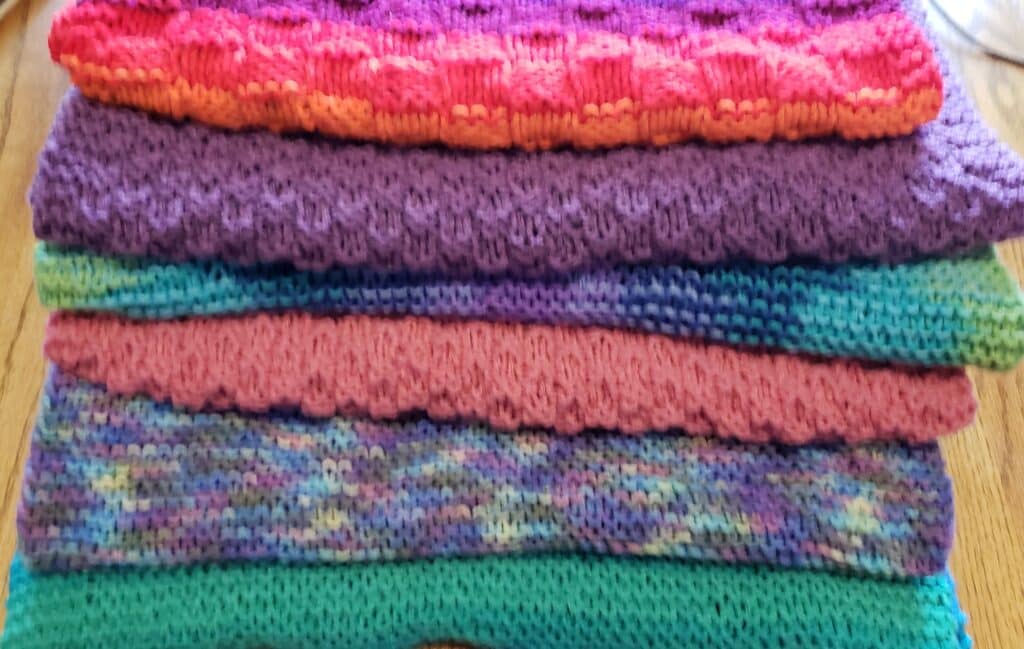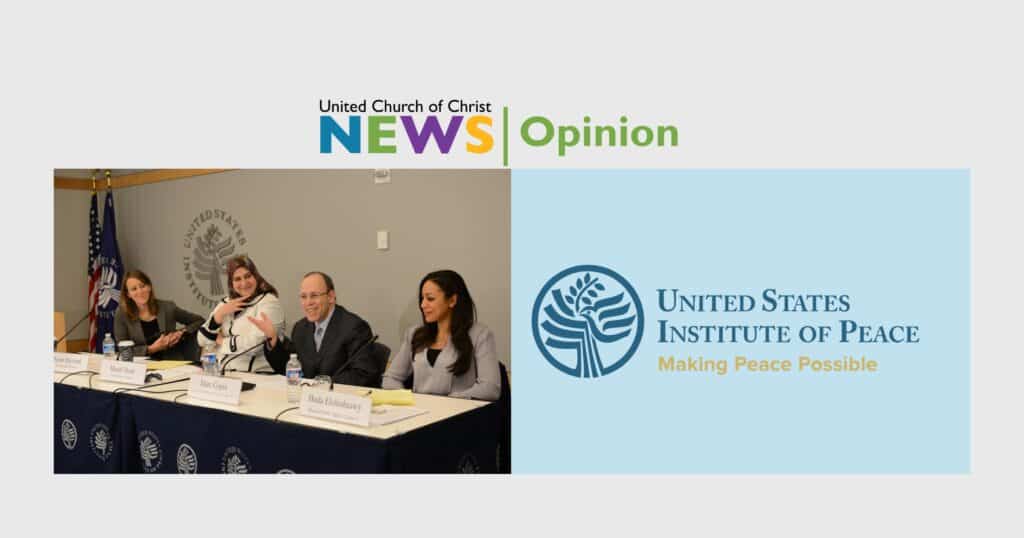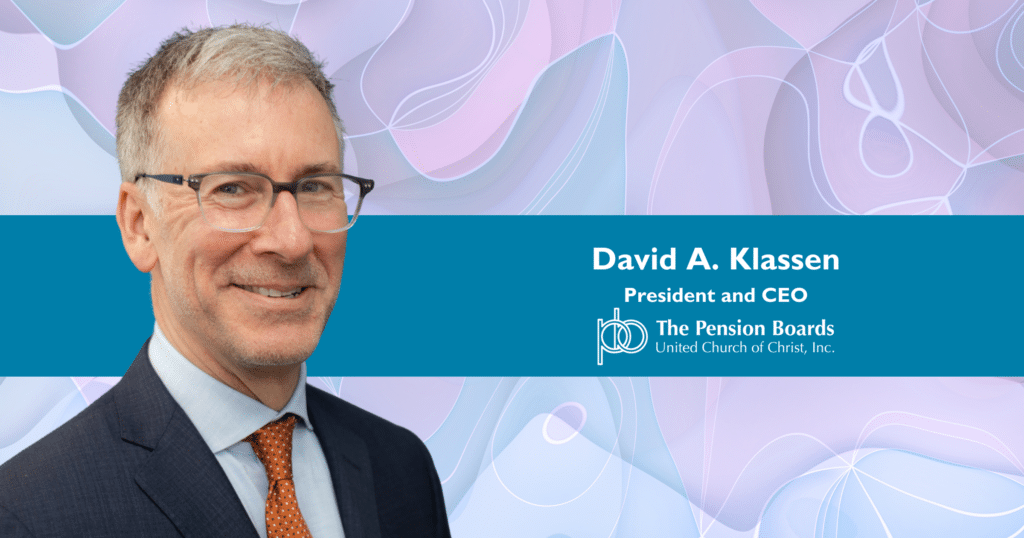Panelists at Synod event celebrate intersectionality, uplift justice work in ‘making all things new’
During General Synod 34 in Indianapolis, several of the United Church of Christ’s national and affiliated ministries came together to host a joint luncheon, “Celebrating Disability, Mental Health, Sexuality and Wellness Justice.”
The July 3 event was led by a wide variety of ministries, including panelists from the Council for Health and Human Service Ministries (CHHSM), Gender and Sexuality Justice Ministries, Encuentros Latinx, the UCC Mental Health Network, the UCC Disabilities Ministries and the UCC Wellness Ministries. They all responded to the prompt, “What are ways you are leaning into making things new?” in reference to Synod’s 2023 theme.
Before and after the discussion, a full room of attendees witnessed music from two drag performers, Gaye Monet and Eden Eclair, and pianist Sean Baker, music designer at the First Congregational Church in Indianapolis — a congregation whose pastor, the Rev. Sarah Lund, offered an invocation for the event. Lund also serves as the UCC’s minister for disabilities and mental health justice.
As evidenced in the numerous hosting ministries, speakers highlighted the collaboration and intersectionality of their work — and the importance of solidarity in achieving justice.
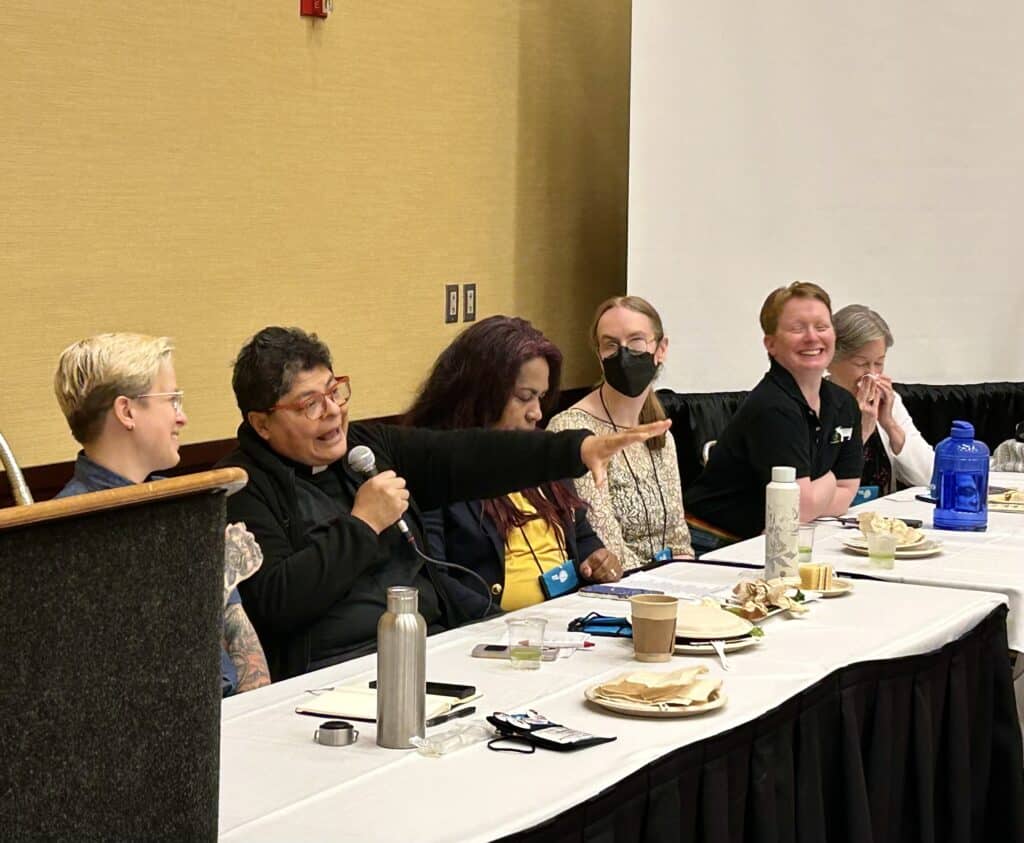
“It’s impossible for us to ‘make all things new’ without the collective,” said panelist Rachael Ward, team lead for the UCC’s gender and sexuality justice ministries and executive director of UCC HIV and AIDS Network. “In Genesis, in the Hebrew Bible, we really get this summation of our journey together as human beings in relationship with God and Earth and Spirit and wind and water and rain and everything in between. It’s to tend to one another and this planet.
“So, it takes all of us, the collective.”
Cultivating awareness
Ward explained that their team is leaning into “making all things new” by working on offering more accessible resources, building up partnerships — such as the ministries represented at the panelists’ table alongside them — and shifting health and wholeness ministries to come under the UCC’s justice work.
They stressed the importance of teaching, advocating and sharing experiences to create greater awareness of injustice, especially for cis persons in becoming aware of trans experiences.
“There is a critical difference between understanding and awareness,” Ward said. “You will never understand the experience of being a being a transgender sibling, but you can become aware. And we want to help, as the gender and sexuality justice team, share awareness of what those experiences are, what this moment means and how you can be involved in making all things new, justice-wise. Because we need you.”
Ward also told attendees that they want to hear from people across the UCC, especially local church pastors and congregations.
Intersectional justice
Other panelists also built on the Synod theme within their own contexts.
“Disability Ministries has always been about making all things new,” said Bekah Maren Anderson, co-chair of the UCCDM board. “Things have not been made for us, so we have had to make them new.”
In addition to increasing their accessibility, Anderson invited congregations to celebrate Access Sunday, but added that “any Sunday is good for access.”
She also touched on racial justice aspects of the disability justice movement, noting that — despite the involvement of people of color — there remains a centering of whiteness. The UCC Disability Ministries, in response to this reality, is looking at ways to support those who are most marginalized, Anderson said. One of those initiatives is the new Fannie Lou Hamer Scholarship for disabled theologians of color.
“We need theology from people with lived experiences,” Anderson said. “It will make better justice for all of us.”
In celebrating the many people in attendance, the Rev. Jess Chancey, Anderson’s co-chair on the UCCDM board and fellow panelist, also pointed out that the very room the event was taking place in wasn’t accessible for all: wheelchair users, they noted, couldn’t come to the front of the room because the tables and chairs were too close together.
“There is no justice if it’s not intersectional justice,” Chancey said. “There is work out there but also in here.”
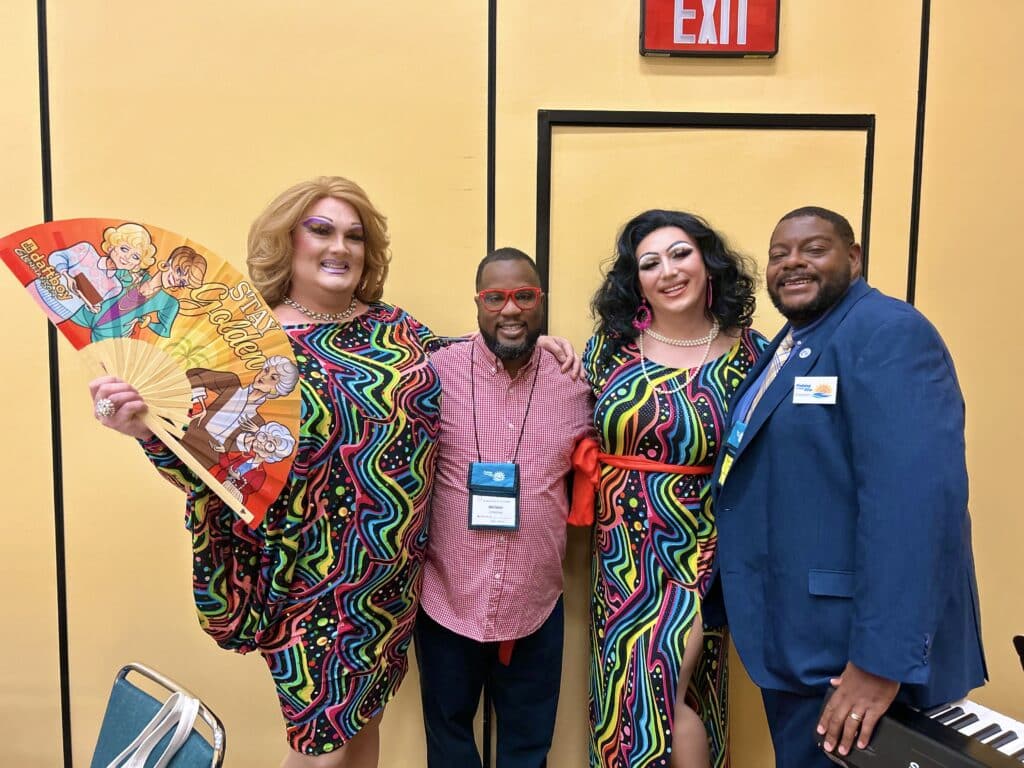
Peggy Matteson, another panelist, spoke about her work in developing a free, online toolkit for churches from the UCC Wellness Ministries.
She explained that the ministry’s focus has changed from “health” to “wellness” because its concerns are not merely the absence of illness. Matteson also noted that Wellness Ministries are experiencing tremendous growth, with more than 1,100 congregations now participating in their own local ministry.
Proximity to the margins
Other panelists for the event included the Rev. Elyse Berry, CHHSM associate for advocacy and leadership development; Bishop Allison Abrams, board chair of the UCC Mental Health Network; and the Rev. Rhina Ramos, national coordinator for Encuentros Latinx.
“If you had the honor of being at the Valerie Russell Luncheon with Bryan Stevenson or are familiar with his work, you’ll know that he says you must be proximate, that proximity matters in justice,” Berry said, referring to another Synod event.
The luncheon and its hosting ministries were attempting to achieve such proximity by centering people and perspectives at the margins of society, as Ward noted, “because I believe that when we go and we stay and we live at the margin, we are closest to walking in the footsteps of Jesus.”
Before the event concluded, the UCC’s Associate General Minister of Justice and Local Church Ministries, the Rev. Traci Blackmon, addressed the standing room-only crowd.
“The fullness of the room overwhelms my heart,” she said. “There were times when there were seats available.”
One of the drag queens — who sang selections of Disney songs — mentioned that she hadn’t been in a church in “a very long time” and being welcomed in that space was a powerful experience for her.
In closing, Berry offered a blessing in the form of a quote from the poem “Table” by Bobby LeFebre: “Our very existence is ceremony.”
The Rev. George Graham contributed to this story.
Content on ucc.org is copyrighted by the National Setting of the United Church of Christ and may be only shared according to the guidelines outlined here.
Related News
Send a prayer shawl along to General Synod 35
There’s been a buzz about Missouri, Kansas – can you hear it? It’s more of a clicking...
Read MoreOpinion: UCC pastor and former Institute of Peace Staffer calls for action in defense of peace
Editor’s Note: The United States Institute of Peace (USIP), an independent institute founded...
Read MorePension Boards appoints David A. Klassen as its President, CEO
The Pension Boards, an affiliated ministry of the United Church of Christ recently announced its...
Read More
